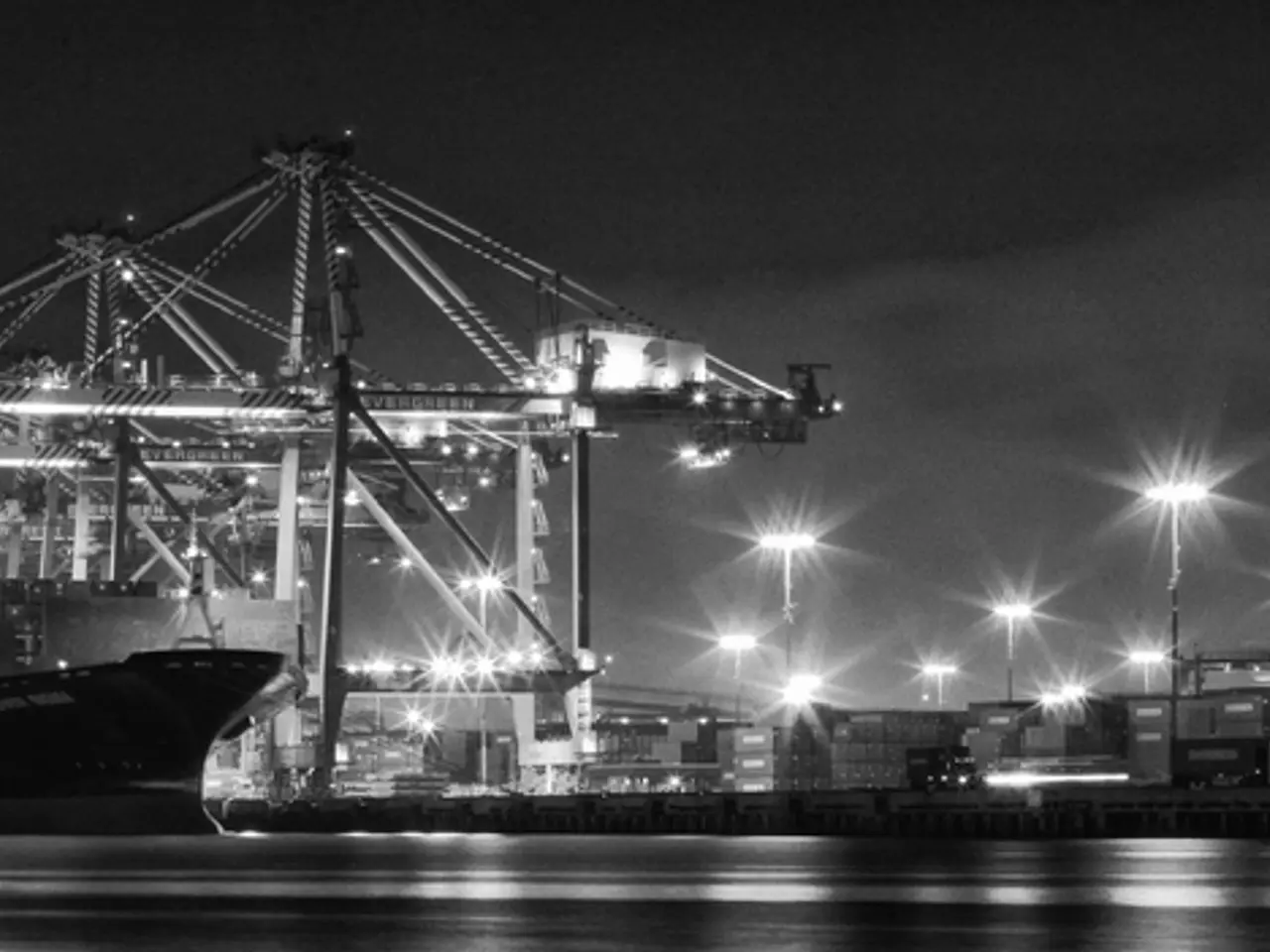Equity markets in Hong Kong plummet, marking a two-month low, due to the Federal Reserve's inflation warning and oil market anxieties.
📊 Stocks plummet amid trade wars and uncertainty
The Hang Seng Index is plunging today, down 2% to 23,231.48 at the midday break, marking the biggest loss since the 13% drop on April 7 when US President Donald Trump announced the so-called reciprocal tariffs. The tech-heavy Hang Seng Tech Index is shedding 2.4%. Meanwhile, the mainland's CSI 300 Index and Shanghai Composite Index are retreating by at least 0.8%.
All but one stock on the 85-member Hang Seng Index are falling. Rate-sensitive names, like Sun Hung Kai Properties (SHKP), are dragging after the Fed kept borrowing costs unchanged for a fourth time this year.
Inflationary pressure looms over global stocks, with the US still stuck in tariff negotiations with most of its trading partners. A breakdown in these talks means American consumers will be shouldering the costs of imported goods, triggering inflationary pressure and pushing the Fed to adopt a more aggressive monetary policy. higher interest rates would lead to outflows from Asia to high-yielding assets.
"Market volatility is on the rise due to trade policy, fiscal policy, and unintended consequences from the Trump administration in the second half of this year," says Tai Hui, a strategist at JPMorgan Asset Management in Hong Kong. Hui advises diversifying equities and income generation from various sources, including corporate credits, Asian fixed income, and option overlay strategies to manage market swings.
📊 Enrichment Insights:
- The Trump administration's high tariffs on China and China's retaliatory tariffs have aggravated the trade conflict, leading to weaker economic sentiment and slower growth.
- The ongoing trade war is impairing corporate strategies by increasing landed costs and forcing adjustments in global supply chains.
- The tariff uncertainties are hindering investment and consumption worldwide, causing market volatility.
- Asian economies are expected to have more aggressive monetary easing to support domestic demand and equity growth, with countries like India benefiting from the U.S. dollar's weakening.
- Certain Asian economies like Vietnam, positioned as alternatives to China in global supply chains, face volatility risks due to high dependencies on U.S. markets and exposure to shifting tariffs.
- Sector-specific impacts, such as challenges to the semiconductor industry and external trade headwinds for Japan, may continue to shape investor behavior and sector valuations in the region.
- The ongoing trade wars and uncertainties are having a significant impact on business, with the Hang Seng Index plunging due to reciprocal tariffs announced by President Trump.
- In the context of the trade war, the economy is feeling the strain as market volatility rises, forcing strategies like diversifying equities and income generation from various sources such as corporate credits, Asian fixed income, and option overlay strategies.
- Finance experts predict that Asian economies may respond to the trade war with more aggressive monetary easing to support domestic demand and equity growth, highlighting the interconnectedness of the business and financial industry in a globalized economy.



![Unsolicited correspondence sent by [sender's name]](/en/content/images/size/w1280/format/webp/20250620122534_taiwanese-internet-personality-live-streaming-in-china-monetizing-political-commentary-criticism-of-democratic-progressive-party-pro-china-comments-censored-language.jpeg)
